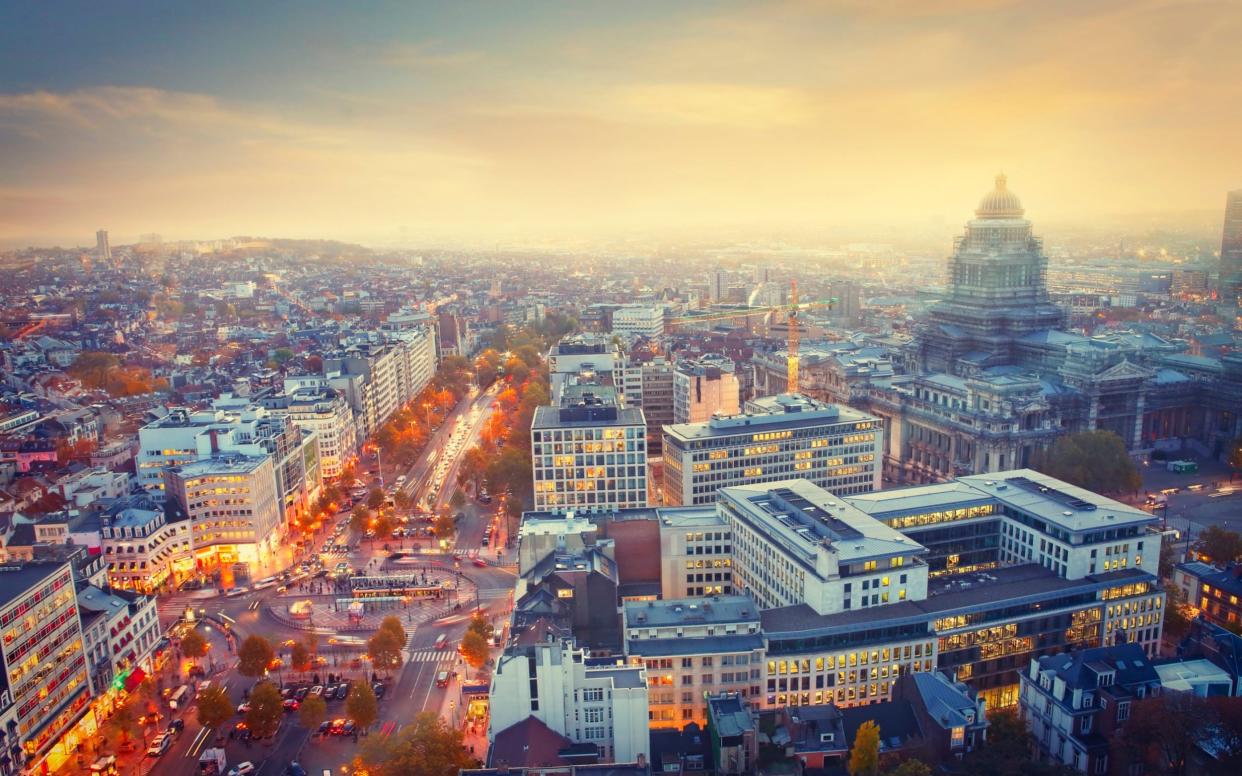10 reasons to move to Belgium

It’s raining and I’m huddled over a tepid beer in a café full of disgruntled tourists. After my third glass of Leffe I badly need to go to the toilet, but it's guarded by a ferocious middle-aged woman. ‘50 cents or no pee pee,’ she snaps.
As I return to my table I feel rather lightheaded so I order a glass of water, but the waiter is having none of it. Local law stipulates against free tap water, he barks. Settling for a seven-euro bottled equivalent, I gaze at the city’s top tourist attraction – a statue of a boy urinating.
Welcome to Belgium.
I arrived in Brussels in 2009 for a job in the European Parliament and was bitterly disappointed. However, after two years in the EU capital and a further year in Antwerp, I learnt that Belgium is a great country with fabulous culture, lots of travel opportunities and a superb quality of life.

The beer is of course good, as is the chocolate. Stray away from tourist traps, such as the notoriously bad Rue des Bouchers in Brussels, and a land of gastronomic delights beckons. Waterzooi, a deliciously creamy chicken and fish broth, and shrimp croquettes are certainly worth a try.
But it’s the foreign recipes that Belgians cook so well. Belgium is a cauldron of nationalities, and the proof of its diversity is in its pudding… or fresh egg pasta: 17% of the population were foreign born, with the largest proportion coming from Italy.
Multicultural Belgium, however, isn’t always seen in a positive light. Muslim migrants face discrimination and ‘Molenbeekphobia’ is a shameful reality. Nevertheless, on the whole Belgians are good at working together calmly to find solutions. In 2010 the country went 589 days without a government, and still ticked along nicely. It even outperformed other euro economies.
With the exception of waiters and shop assistants, Belgians are adept at seeking compromise. If you’re invited to a house party, the first question you’ll be asked is which language you prefer. There are three official languages (French, Flemish and German), but my Belgian friends speak excellent English and can get by in many more languages too.

This mutuality and fairness to all is intrinsic to Belgian culture. Medical care is state funded, propped up by private insurance costs which vary according to personal income. While private clinics do exist, they are rare. Many doctors practise integrative medicine, meaning that patients have the freedom to choose between traditional and alternative healthcare options.
Belgian equality is perhaps most evident in its childcare. State funded schools from the age of two-and-half and heavily subsidised kindergartens ease the burden of parents returning to work. Kraamzorg, a subsidised post-natal care service, supports mothers for the first three months after the birth with everything from washing the dishes, to measuring the circumference of the baby’s head. Meanwhile, a subsidised household help scheme is available to all, including those without children. Under this system, one hour of cleaning or ironing costs €9, and at the end of the tax year 30% is refunded by the state.
All this comes at a cost. Tax rates are some of the highest in the world, with those earning over €40,480 hit with 50% rates. However, senior expats working on a temporary assignment for an international group benefit from a special tax status which classifies them as non-residents. It gets better – they also enjoy rebates for one-off costs while setting up their new homes. Thanks to yet more favourable tax incentives one in three of all employees in Belgium have the use of a company car, although the government is now promoting more environmentally friendly alternatives.
Belgium is such a great place to live that many expats choose to stay on permanently. Every month 90 Britons apply for Belgian nationality. Known as the ‘Brussels trap’, it could easily apply to the whole country. Expats find themselves ‘trapped’ with an easy commute to work, affordable housing and the possibility of raising a family without breaking the bank.

Belgium is not just an easy place to live, it’s also fun. Boring Belgium is a misnomer. For those in the know, it’s a treasure trove of fine art, alternative music and amusing (if at times bizarre) pop ups, exhibitions and street parties. The sleepy town of Boom is home to one of the world’s largest electronic music festivals, Tomorrowland. With its dedicated fashion district and hip Scandi vibe, Antwerp is a particularly attractive prospect for hard up creatives driven out of London, Paris and Amsterdam.
It’s not all fun and frites though. With around 200 days of rain per year, an umbrella definitely comes in handy. Patience is essential too. Customer service is so bad that there’s even a Twitter account dedicated to it. Ask for anything off the menu, a reimbursement or a different size and chances are you’ll be met with an indifferent shrug: ‘pas possible’.
Belgium is not the easiest country to move to. It takes time to discover its charms. I had to say au revoir and tot ziens in 2016, but if I could move back I would do so gladly. I’d willingly return to its beautiful city parks, fabulous art galleries and relaxed way of life, but I’d give one café in particular a miss.
Considering a one-way Eurostar across the North Sea? Here are ten reasons why Belgium is a great place to live:
Healthcare: Medical care in Belgium is excellent overall. Patients can consult with a specialist directly, bypassing the need to go via a GP. Alternative healthcare, including osteopathy and homeopathy, is partly reimbursed by the state.
Childcare: Kindergartens are heavily subsidised, and school is free for children from two-and-a-half years old. There is a range of education styles on offer, from traditional Catholic to progressive Steiner schools, as well as fee paying international colleges.
Humour: Get to know them and you’ll be surprised how fun Belgians are. Self-deprecation and silliness are de rigeur.
Language: Belgians are often mocked by their Gallic neighbours for their slower diction and unusual turns of phrase, but non-native speakers will undoubtedly find Belgian French easier to understand. Meanwhile in Flanders most locals speak fluent English. Throw in a few Flemish phrases and you’ll be rewarded with a surprised smile.
Travel: Belgium is about eight times smaller than the UK. Its compact size, along with its great roads, brilliant rail network and Schengen membership make holidays across the border a breeze. Inside Belgium, getting around by bike is very convenient, with dedicated cycle lanes stretching across most of the country.
Tax: Director level expatriates working at international groups or research centres benefit from hugely generous tax exemptions. Additional rebates depend on the individual case, but typically include the cost of decorating the new home and even the expatriate’s child’s education.
Culture: The highbrow sits snugly alongside the experimental in Belgium. Renaissance art, comic book literature, Art Nouveau architecture and electro music are all part of the country’s proud heritage. World renowned music, fashion and art festivals take place alongside smaller free events, meaning there is always something going on to entertain and delight.
Multiculturalism: While racism and prejudice are certainly an issue, Belgium is wonderfully multicultural. It’s a rare delight to see Italian, Moroccan, Chinese and West African roots mingling among each other in such a small space. Not only does it make the country more interesting, it also makes for some of the best restaurants in the world.
Food: With such an ethnically diverse population and so many business travellers to the region, it’s no surprise that Belgium hosts some of the best restaurants in the world. With elegant local cuisine and authentic foreign eateries, expats in Belgium will not go hungry.
Pace: The slower pace of life in Belgium might infuriate first time arrivals, but most long-term residents grow to love it. Shops are generally closed on Sundays, making the country blissfully calm on weekends in particular.

 Yahoo News
Yahoo News 
